Spring: Dec 1
Summer: n/a
Part-time (Evenings)
Overview
The online MA in Leadership is designed to prepare you to become an effective, informed, and skilled leader who can facilitate the creation and development of just and inclusive organizations. Graduates from this program go on to leadership roles across a variety of in education, nonprofit, community-based, policy, governmental, and social enterprise settings.
This fully-online program offers courses in a range of fully synchronous to partially asynchronous. Students can choose to pursue the program either full-time or part-time, but because this is a post-professional program many of our students work while completing the degree.
Program Outcomes
The interdisciplinary Tufts Leadership master's program prepares graduates to lead with integrity across a variety of organizational contexts. The program blends academic rigor and scholarship with applied learning, encouraging students to examine systems of power, develop a personal leadership philosophy, and apply their learning to real-world challenges.
As a student in the program, you will join a cohort from a variety of backgrounds and scholarly fields. Core coursework emphasizes leadership theory, organizational change, and equity frameworks, while custom pathways provide opportunities for specialization in applied, skills-based areas. You may choose to pursue one of several specializations or design an individualized pathway by selecting courses across multiple specializations. Graduates of the program will be prepared to lead in higher education, nonprofits, government, community-based organizations, and the private sector. You will be equipped to design and implement strategies that advance equity, strengthen organizational capacity, and respond to evolving workforce and societal needs.
Our curriculum emphasizes:
- Expansive and ethical leadership
- Systems thinking and organizational change
- Equity-driven strategy and decision-making
- Cross-sector collaboration and policy influence
- Service-oriented leadership
Flexible Format and Options
This program is dynamic and flexible in order to meet the needs of our students and is available in a fully online format. Students can choose to pursue their degree full-time (minimum of 9 credits per semester) or part-time.
Students enrolled full-time can complete the program within two years if some courses are taken over the summer. Students applying for Fall entry may choose to accelerate the program by taking courses during the summer of their admission year.
Students enrolled part-time typically take two to three years to complete the program. The program's online format makes the part-time study option particularly appealing for students who are balancing their education with full-time or part-time employment.
You can tailor your studies to your interests, choosing to focus on either an individualized pathway, or select one of the following focused specializations:
- Organizational Learning and Leadership
- Negotiation and Communication
- Sustainable & Impact Investing
- Strategic Planning and Evaluation
Application Requirements
The Leadership program is committed to holistically reviewing all applications. This means that each application will undergo a balanced review across all components to assess the student's fit with the program.
- Application fee
- Resume/CV
- Personal statement
- Official TOEFL, IELTS, or Duolingo English Test, if applicable
- Transcripts
- Three letters of recommendation
- Video Submission
Tuition & Fees
GSAS bills tuition using a per-credit billing model, meaning you are billed for the number of credits you take each semester. This billing model is used to provide students better flexibility so they may "pay-as-they-go".
| Tuition* | $1,799 per credit |
| Total Credits Required | 30 |
| Enrollment Status | Part-Time: 3-6 credits (typically 1-2 courses) Full-Time: 9+ credits (typically 3 or more courses) |
Estimating Tuition Costs for this Program
This example pathway outlines estimated tuition costs per semester using a typical full-time course load. This is one possible pathway to completion; actual credits, costs, enrollment status, and degree completion time may vary based on a student’s course load.
| Full-Time Pathway | Fall | Spring | Summer | Total |
| Year 1 | 9 credits | 9 credits | 3 credits | 21 credits |
| $16,191 | $16,191 | $5,397 | $37,779 | |
| Year 2 | 9 credits | n/a | n/a | 9 credits |
| $16,191 | n/a | n/a | $16,191 | |
| Estimated Total Tuition Before Aid* | $53,970* | |||
Note: this example does not account for any scholarships that may be awarded at the time of admission. GSAS offers generous merit- and need-based tuition scholarships for qualified applicants. A list of funding opportunities is provided below.
*Estimated based on 2025-2026 tuition rates. Rates are subject to change each academic year. For further information about the full cost of attendance, including health insurance, fees, and estimated indirect costs (housing, transportation, etc.), visit Student Financial Services.
Financial Aid & Funding Opportunities
At Tufts University, we believe that every qualified applicant should have the opportunity to pursue graduate study, regardless of financial circumstances. We are committed to helping you navigate the financial aspects of your education and strive to make graduate school accessible through a variety of support options.
Scholarships and Awards Available for this Program
- Merit- and need-based tuition scholarships for master’s programs: To be considered, be sure to indicate your interest within the Financial Aid section of your application.
- The Future Leaders Fellowship is a full-tuition scholarship for outstanding full-time master’s students and entry-level OTD students. Future Leaders Fellows are selected by the GSAS Dean following their admittance to Tufts.
- City Year Corps members, alumni, and staff are eligible to receive a minimum scholarship award of 25% off tuition.
Work Opportunities and Awards
- There are various graduate assistantships and work opportunities available for Master’s students across Tufts.
- The Graduate Student Open Access Publishing Fund provides financial support to students who want to publish their work open access.
- The Graduate Student Research Competition provides funding for expenses including equipment, materials, and supplies; research participant compensation; and expenses of travel to conduct research.
- The Graduate Student Conference Reimbursement Fund is available for students to travel to present or attend at a conference or professional meeting.
Visit our Graduate Financial Aid page for information on loans and financing options.
Career Outcomes
Average Salary: $100k - $162K
Average Age: 32
Overall Satisfaction with Tufts Grad Program: 91%
*Sources: GSAS-SOE Graduate Exit Survey 2024 and Lightcast (Alumni Pathways), February 2026
Faculty
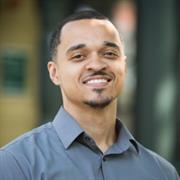
Lilu Barbosa

Lilu Barbosa

Maritsa De Sena

Maritsa De Sena
Research/Areas of Interest: Organizational Leadership Lived Experiences of CDOs
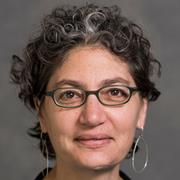
Laurie Goldman

Laurie Goldman
Research/Areas of Interest: housing policy; gentrification and anti-displacement strategies; workforce development; policy implementation and innovation; public and nonpro.t management; theories of change approach to program evaluation, social change, and movement building.
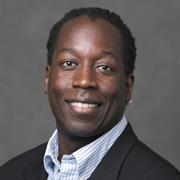
Keith Maddox

Keith Maddox
Research/Areas of Interest: Social Cognition, Stereotyping, Prejudice, Discrimination
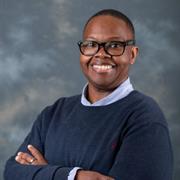
Shameka Powell

Shameka Powell
Research/Areas of Interest: Educational Equity, Teacher Education, Critical Race Theory, Social Context of Schooling, Urban Schooling, Multicultural Education
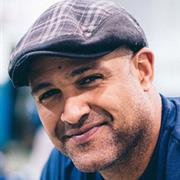
Silas Pinto

Silas Pinto
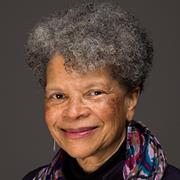
Ellen Pinderhughes

Ellen Pinderhughes
Research/Areas of Interest: Families and children in challenging circumstances; parenting and family functioning among diverse families; ethnic-racial socialization processes; cultural and contextual influences; child and youth outcomes; adoption and foster care